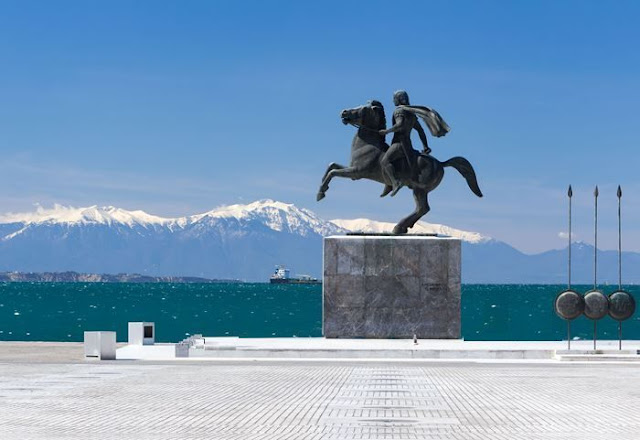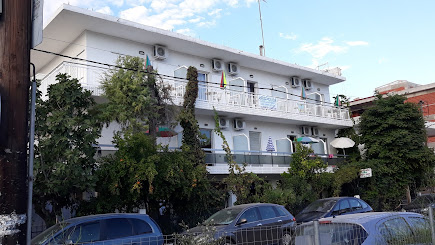Vergina (
Greek:
Βεργίνα [verˈʝina]) is a small town in northern
Greece, located in the regional unit of
Imathia,
Central Macedonia. Since the 2011 local government reform it is part of the municipality
Veroia, of which it is a municipal unit.
[2] The town became internationally famous in 1977, when the Greek archaeologist
Manolis Andronikos unearthed the burial site of the kings of Macedon, including the tomb of
Philip II, father of
Alexander the Great. The finds established the site as the ancient
Aigai (
Greek:
Αἰγαί).
The modern town of Vergina is about 13 km (8 mi) southeast of the district centre of
Veroia and about 80 km (50 mi) southwest of
Thessaloniki, the capital of
Greek Macedonia.
The town has a population of about two thousand people and stands on
the foothills of Mount Pieria, at an elevation of 120 m (394 ft) above
sea level.
History
During the 8th and 7th century BC the area was ruled by
Illyrian tribes, which established a strategic base at the location of Aegae. When in the early 7th century BC local
Thracian and
Paeonian tribes revolted, the Illyrians pulled out.
[3] In approximately 650 BC, the
Argeads, an ancient Greek royal house led by
Perdiccas I, fled from
Argos and established their capital at Aegae, thereby also establishing the
Kingdom of Macedon.
[3]
Aegae is said to mean "city of goats" (αἴξ is the Greek word for goat).
The capital city of the Macedon kings was called so after Perdiccas I,
who was advised by the Pythian priestess to build the capital city of
his kingdom where goats led him.
[4]
From Aegae they spread to the central part of Macedonia and displaced
the local population of Pierians. The area of modern Vergina, which was
inhabited by Pierians, thus remained uninhabited until the middle of the
6th century BC. After 550 BC, a Macedonian population settled in the
area. In the 5th century BC, King
Archelaus I moved the Macedonian capital north to
Pella on the central Macedonian plain.
[5] Aegae remained an important ceremonial center but lost a festival in honor of
Zeus to
Dion.
[5]
Aegae continued to flourish even after the raids of the 3rd century BC
and new excavations prove that it was still inhabited in the 1st century
AD.
[6][7]




Σχόλια
Δημοσίευση σχολίου